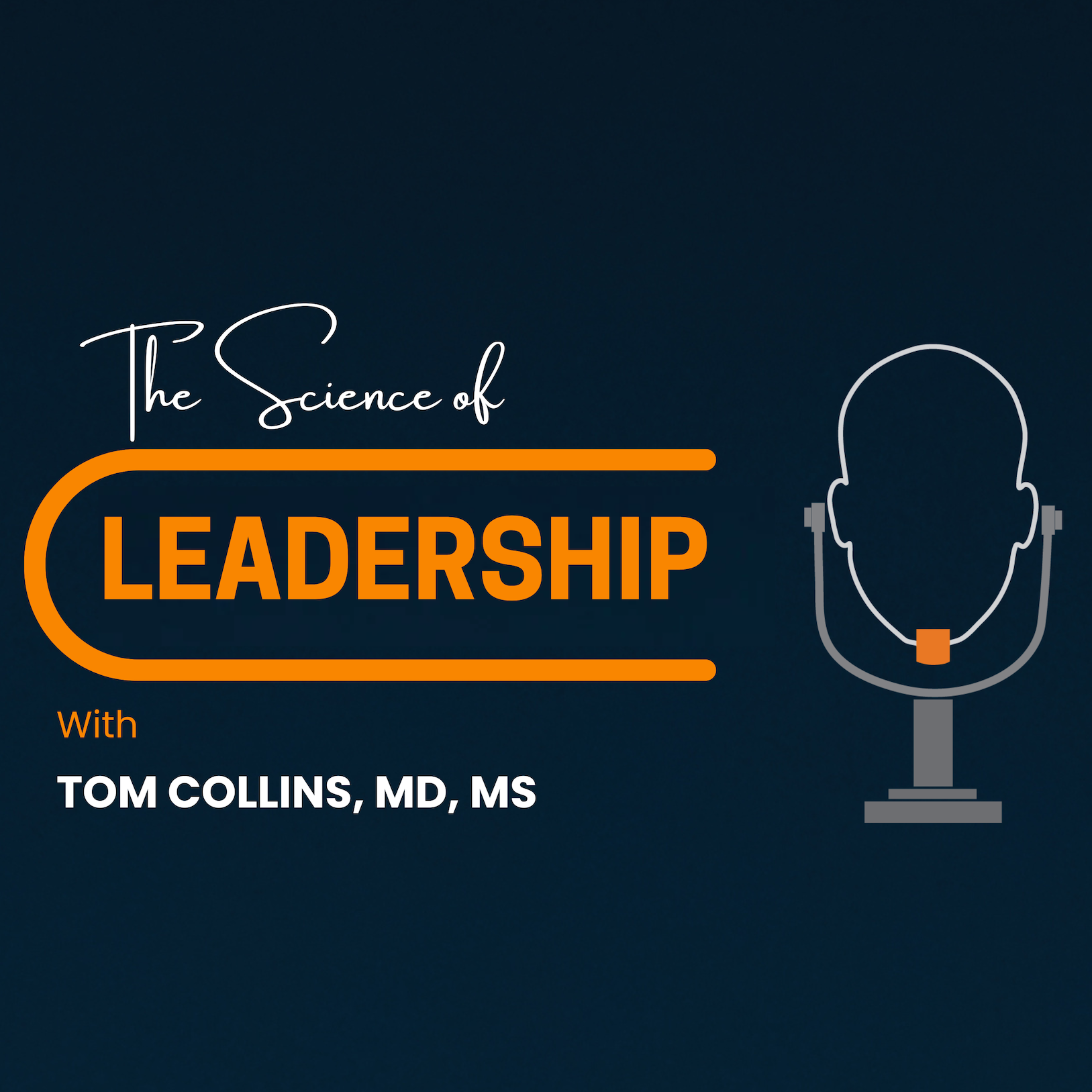
4.4K
Downloads
49
Episodes
The Science of Leadership is the podcast for listeners who want to build their leadership capabilities, providing valuable knowledge, insightful perspectives, and inspiring stories from expert leaders across various fields. The episodes range from one-on-one interviews with experts to discussions between the host and co-host. All episodes are supported by the latest scientific research in leadership, psychology, and other pertinent fields. Whether you’re an aspiring business leader, a healthcare professional, a community leader, or someone passionate about personal growth, our podcast is designed to equip you with the skills and wisdom needed to lead with confidence and impact. Join us on this journey to become a better leader and make a difference in your world!
Episodes

Tuesday Dec 10, 2024
The Impact a Mentor Can Have | Ep. 19 | The Science of Leadership
Tuesday Dec 10, 2024
Tuesday Dec 10, 2024
In this episode of @TheScienceofLeadership Tom Collins and Justin Hamrick explore the critical role of mentorship in developing effective leaders. They discuss the historical context of mentorship, the qualities that make a great mentor, and share personal experiences that highlight the profound impact mentors can have on one's leadership journey. The conversation emphasizes the importance of being proactive in seeking mentorship, setting clear goals, and maximizing the mentoring relationship for personal and professional growth.
Keywords
leadership, mentorship, personal development, qualities of mentors, leadership growth, mentoring relationships, professional development, leadership skills, character, competence
Takeaways
• Mentorship is essential for leadership development.
• Great mentors prioritize the success of their mentees.
• The historical context of mentorship dates back to Homer's Odyssey.
• Qualities of effective mentors include patience, knowledge, and trustworthiness.
• Personal experiences with mentors can shape one's leadership style.
• Mentorship leads to increased competence and decision-making skills.
• Finding a mentor requires proactive searching and investment.
• Mentees should set clear goals and prepare for meetings.
• Mentorship is an investment in personal development.
• Continuous growth is vital for effective leadership.
References
Allen, T. D., & Poteet, M. L. (1999). Developing effective mentoring relationships: Strategies from the mentor’s viewpoint. Career Development Quarterly, 48(1), 59–73.
Day, D. V. (2001). Leadership development: A review in context. The Leadership Quarterly, 11(4), 581–613.
Eby, L. T., Allen, T. D., Evans, S. C., Ng, T., & DuBois, D. L. (2008). Does mentoring matter? A multidisciplinary meta-analysis comparing mentored and non-mentored individuals. Journal of Vocational Behavior, 72(2), 254–267.
Homer. (1996). The Odyssey (R. Fagles, Trans.). Penguin Classics. (Original work published ca. 8th century BC)
Kram, K. E. (1985). Mentoring at Work: Developmental Relationships in Organizational Life. Glenview, IL: Scott, Foresman.

No comments yet. Be the first to say something!